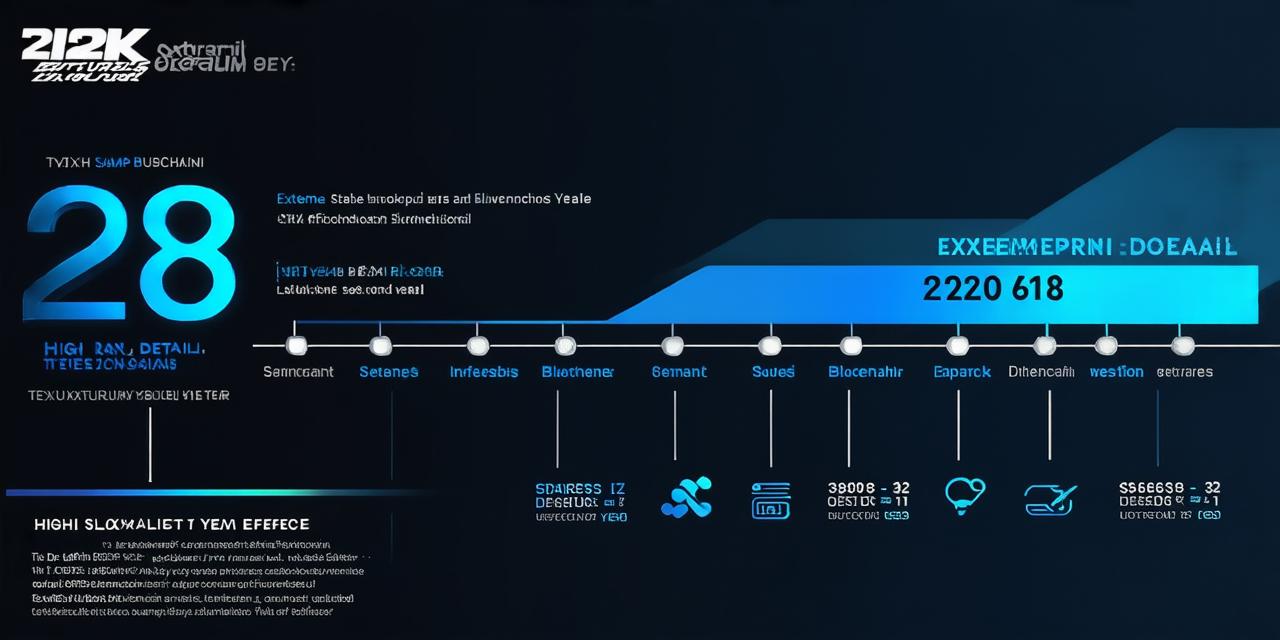1. The Growing Number of Companies Using Blockchain
According to a recent survey conducted by Deloitte, over 80% of Fortune 500 companies have already implemented or are planning to implement blockchain technology. This indicates that the adoption rate of blockchain is rapidly increasing, with more businesses recognizing its potential for improving their operations and enhancing customer experience.
2. Real-life Examples of Blockchain Adoption in Business
a. Walmart: Walmart, one of the world’s largest retailers, has implemented blockchain technology in its supply chain management system. This has enabled Walmart to track products from the source to the store shelves, providing greater transparency and traceability for consumers. The use of blockchain has also reduced the time and cost involved in tracking products, making it easier for Walmart to manage its inventory.
b. IBM: IBM is another company that has embraced blockchain technology. IBM has partnered with various organizations to develop blockchain-based solutions for a range of industries, including banking and finance, healthcare, and supply chain management. IBM’s blockchain platform, Fabric, has been used by companies such as Maersk and Provenance to improve their operations and enhance the customer experience.
c. Unilever: Unilever, a multinational consumer goods company, has implemented blockchain technology in its supply chain management system. This has enabled Unilever to track products from the source to the store shelves, providing greater transparency and traceability for consumers. The use of blockchain has also reduced the time and cost involved in tracking products, making it easier for Unilever to manage its inventory.
d. Daimler: Daimler, a German automotive company, has implemented blockchain technology to improve its supply chain management system. Blockchain has enabled Daimler to track products from the source to the store shelves, providing greater transparency and traceability for consumers. The use of blockchain has also reduced the time and cost involved in tracking products, making it easier for Daimler to manage its inventory.
3. Challenges and Future Prospects for Blockchain Adoption in Business
While the adoption rate of blockchain technology is rapidly increasing, there are still some challenges that businesses must overcome to fully embrace this revolutionary technology. These challenges include:
- Lack of Regulatory Guidance: Blockchain technology is still relatively new, and there is currently a lack of regulatory guidance for businesses looking to implement this technology. This uncertainty can be a barrier to adoption, as businesses are hesitant to invest in technology that may not be compliant with regulations.
- High Implementation Costs: The implementation of blockchain technology requires significant investment in infrastructure and software development. This can be a challenge for small and medium-sized businesses, which may not have the resources to invest in this technology.
- Technical Complexity: Blockchain technology is complex, and implementing it requires specialized technical expertise. This can make it challenging for businesses to find the right talent to develop and maintain their blockchain-based systems.
3. Challenges and Future Prospects for Blockchain Adoption in Business
Despite these challenges, the future prospects for blockchain adoption in business are bright. As regulatory guidance becomes more established, and implementation costs decrease, more businesses will be able to embrace this revolutionary technology. The potential benefits of using blockchain technology, such as increased transparency, traceability, and efficiency, make it an attractive option for businesses looking to improve their operations and enhance the customer experience.
Conclusion: How Many Companies Are Using Blockchain?

The number of companies using blockchain technology is rapidly increasing, with over 80% of Fortune 500 companies already implementing or planning to implement blockchain technology. This reflects the growing recognition of the potential benefits of using this revolutionary technology for businesses across various industries. The real-life examples of blockchain adoption in business, such as Walmart and IBM, demonstrate how blockchain technology can improve supply chain management, reduce costs, and enhance the customer experience. While there are still challenges to overcome, the future prospects for blockchain adoption in business are bright, and businesses looking to embrace this technology should be encouraged to do so.



